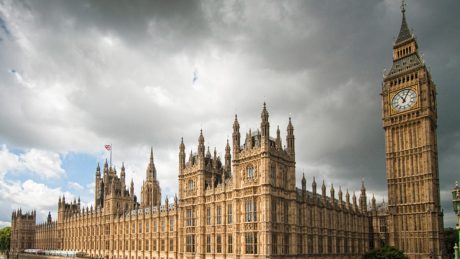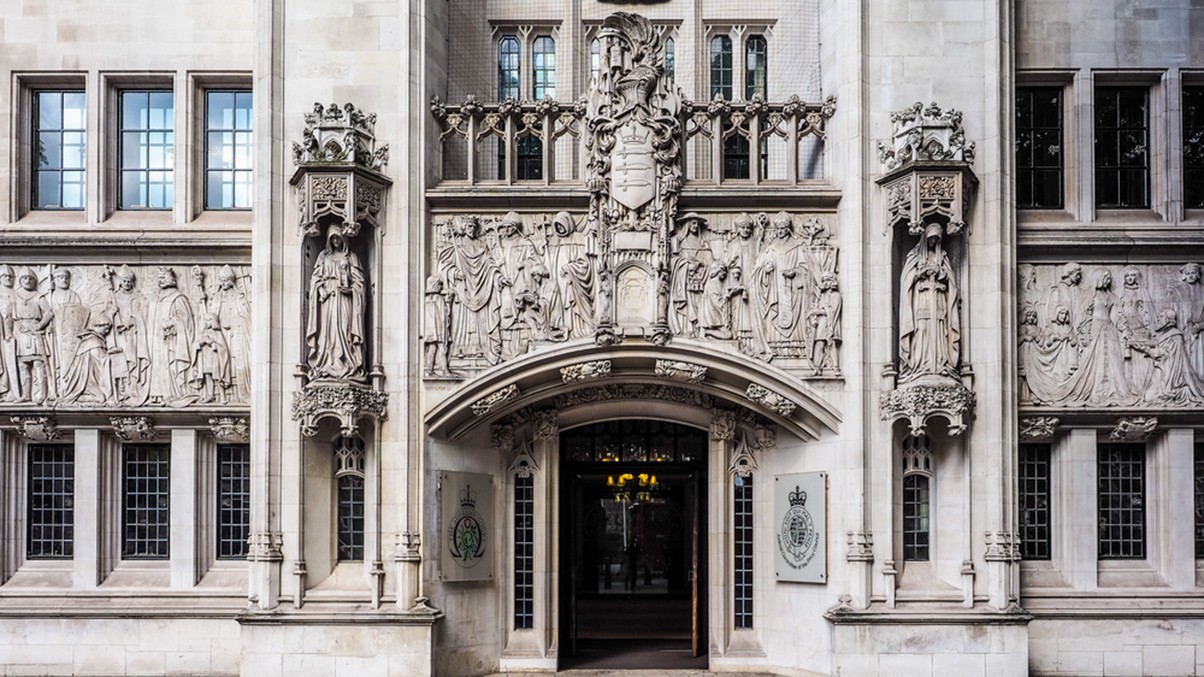The judgment in Stonegate provides the first public decision in this jurisdiction on the appropriate treatment of furlough payments and business rates relief.
On 17 October 2022, judgment was handed down simultaneously in Stonegate v MS Amlin & ors, Greggs v Zurich and Various Eateries v Allianz, each of which turned on a number of common issues going to quantification of Covid-19 business interruption (BI) losses. The cases explored three core issues regarding the quantification of business interruption coverage, generally and in the context of Covid-19.
While still subject to appeal and therefore not yet final, the first instance judgments in the three cases represent the most detailed authorities so far on these issues. This three-part series by Aaron Le Marquer and James Breese examines the reasoning behind each of the core issues, considers the broader coverage implications, and looks forward to forthcoming developments that will test the remaining unresolved issues.
After part one addressed aggregation and part two considered causation, this third and final part looks at the treatment of government support.
Coronavirus Job Retention Scheme (CJRS)
The CJRS was implemented in March 2020 in response to the economic emergency posed by Covid-19. HMRC summarised it as an unprecedented package of measures designed to “protect millions of jobs and incomes to help ease the financial burden for businesses and the UK population”.
The scheme enabled employers to recover from HMRC up to 80% of the expenditure incurred up to a maximum of £2,500 per calendar month per furloughed employee.
The scheme did not end until 30 September 2021. It is estimated to have cost the Treasury in the region of £70bn.
The issue
The treatment of government support was the sixth issue in Stonegate’s stage one trial:
“Are any payments received by the Claimant under the Coronavirus Job Retention Scheme and/or is any business rates relief received by the Claimant to be taken into account for the Defendants’ benefit when calculating any sums recoverable under the Policy?”
This is a common issue for many business interruption insurance claims where coverage has been confirmed. Policyholders generally say that furlough payments should not be deducted from the indemnity. Insurers say the opposite. Both sides allege the other will receive a windfall in either situation. In reality, the position is more nuanced and, as ever, depends on the facts of any given claim.
Stonegate
Cases were presented both as a matter of construction of the policy terms and under the general law doctrine of subrogation and the principle of res inter alios acta (that collateral payments by a third party do not extinguish or alter the insurer’s liability).
As a matter of construction, Stonegate argued that: (i) furlough payments do not fall within the definition of “Turnover”; and (ii) furlough payments are not to be treated as a saving to the business.
As to (i), “Turnover” was defined in the policy as:
“i. the money paid or payable to the Insured for goods sold and/or for services rendered in the course of the Insured’s Business at the Insured Locations…”
Stonegate argued that furlough receipts do not fall within that definition because they have not been received in return for goods or services. Rather, the furlough payments were received because of Stonegate’s inability (or reduced ability) to provide goods and/or services. Stonegate did accept that employment costs are normally payable out of turnover.
As to (ii), the savings clause in the policy was incorporated into the definition of “Reduction in Turnover”. The relevant part provided as follows:
“i. [Reduction in Turnover]
LESS
- any costs normally payable out of Turnover (excluding depreciation) as may cease or be reducing during the Indemnity Period as a consequence of the Covered Event.”
Stonegate argued that the payment of wages did not cease, and the cost to the business was not reduced within the meaning of the policy provisions. Rather, Stonegate argued that the business received support from the government that was just measured by reference to the cost of wages.
In addition to the specific construction points above, Stonegate argued in relation to the general law position that the furlough payments were a gift that were not a matter for the indemnity calculation.
Insurers
By contrast, insurers argued that:
- furlough payments must have created to some extent a saving for Stonegate;
- furlough payments were received in consequence of the insured peril and equivalent to a saving to be taken into account when calculating indemnity;
- the purpose of the savings clause is to prevent the over-indemnification that would occur if CJRS payments are not accounted for; and
- when considering the position under common law, Stonegate was unable to show that the government intended to exclude insurers from any benefit that may be derived from the furlough payments. Insurers were therefore subrogated to the benefit of the payments.
The judgment
Mr Justice Butcher’s findings on the government support issues can be found at paragraphs 251 – 298 of his judgment. Mr Justice Butcher first dealt with the policy construction points, which he found to be determinative, before considering the common law position, on which his views were, therefore, obiter (ie in passing and not relevant to his judgment).
On the construction case, he considered that the sole issue was whether CJRS grants had caused the relevant employment costs to cease or be reduced.
In that regard, he found that employment costs were at least reduced by the CJRS payments, and that this reflected the “net financial effect of payments under the CJRS and the commercial reality”. Mr Justice Butcher reached this view for three reasons:
- Although Stonegate had treated CJRS grants as “other income” for accounting purposes, the reporting standard adopted by it also permitted the grants to be netted off against employment costs. The court made clear that the accounting standard will not be determinative. Nevertheless, for Stonegate, in this case, it supported the view that employment costs had been reduced.
- Stonegate had received furlough payments both in respect of employment costs already paid and amounts yet to be paid. While this was also not in itself determinative, the court found that it was a significant factor in determining whether employment costs had been reduced.
- The outcome should not contradict the fundamental principle of insurance that an insured should never be more than fully indemnified. This appeared to be the deciding factor, and Mr Justice Butcher’s decision ultimately turned on his view that “the CJRS payments were in respect of an expense of the business, and resulted, in reality, in a saving of cost”.
Turning to the general law on the doctrine of subrogation and the principle of res inter alios acta, Mr Justice Butcher considered that the contractually agreed terms of the policy were paramount, and could not be overridden by common law principles. Nonetheless, if the general law had been applicable, he found that the outcome would have been the same. This is because, the court said, Stonegate did not show that the CJRS was implemented to the exclusion of insurers. Accordingly, insurers would have had a subrogated claim and were entitled to the benefit of the CJRS payments.
Business rates relief
The position in relation to business rates relief may depend on whether business rates are payable out of turnover or not. In Stonegate, there was not enough evidence available to the court to reach a finding on this.
If business rates are payable out of turnover, then the position is likely to be the same as with furlough payments, as the court will find that there has been a saving to the business.
If business rates are not payable out of turnover, then the position may be different, as the savings clause (at least in this policy) will not be applicable. Mr Justice Butcher doubted that, in that case, the common law could override the policy terms to produce a different outcome but acknowledged that it remained open to detailed argument.
Appeal
On 21 November 2022, Mr Justice Butcher granted permission to Stonegate to appeal his decision on furlough (as well as certain aspects of his decision on aggregation.). The position in relation to furlough is, therefore, not yet final and will be reconsidered by the Court of Appeal in 2023. Until then, policyholders’ position in relation to any deductions should remain reserved.
Other decisions
While the court’s decision on these issues in Stonegate is currently the only (non-final) authority on the matter in this jurisdiction, others have come to a different view.
First, the Hiscox Action Group arbitration, which proceeded alongside the FCA test case, produced the opposite conclusion. Confidentiality was not waived in that arbitration, so the tribunal’s reasoning is unknown. However, the fact of the decision, reached by a distinguished panel of respected judicial insurance law experts, was made public at the time.
Second, in March 2022, the Full Federal Court of Australia decided in favour of policyholders when determining how JobKeeper payments (a furlough equivalent) should be treated (Star Entertainment Group v Chubb). Insurers succeeded on the point at first instance, but the Full Federal Court of Australia overturned the position on appeal. The High Court in Australia, the highest court in that jurisdiction, rejected the insurers’ application to appeal, and the decision is now final and in favour of policyholders.
In Stonegate, the court distinguished the position from that in Star Entertainment, because in Star Entertainment, the relevant policy provision required that the “sum saved” had to be “in consequence of the interruption or interference”. In Stonegate’s case, the clause required the saving to be made “as a consequence of the Covered Event”. As “Covered Event” in the context of the Stonegate policy included all Covid-19 occurring in the UK (ie the pandemic), the court was able to draw the necessary causal link between the Covered Event and the saving.
In contrast, in Star Entertainment, the court found that the financial relief and consequent savings were not caused by the interruption to the business, and the court noted that the relief was available to any party regardless of whether or not they had suffered interruption. Therefore, the relevant causal link was not established, and the JobKeeper payments did not need to be factored into the indemnity calculation.
Comment
The divergence of outcome between the decisions described above and the ongoing appeal in Stonegate demonstrates that the issue is far from resolved.
Importantly, it is clear that Mr Justice Butcher and the Australian court’s contrasting decisions were based at least in part on textual differences between the policy wordings in question, meaning that there will perhaps never be a single correct answer to the question with general application.
Mr Justice Butcher was clear that his decision was based on an analysis of the construction of the policy terms and not upon his view of the relevant common law principles, in relation to which his comments were therefore strictly obiter. For those reasons, the court’s reasoning in Stonegate (which is subject to appeal) should be treated with caution when considering the position in relation to claims under other policy wordings.
Setting aside the legal merits, in circumstances where furlough has cost the Treasury in the region of £70bn and insurers now benefit from a windfall as a direct result of that investment, further scrutiny certainly feels welcome if not essential. Against a backdrop of hospitality insolvencies reported to be up 59% year-on-year, but with insurers’ profits rebounding to pre-pandemic levels, many will question the fairness of passing furlough relief funds straight from the taxpayer to insurers.
If Mr Justice Butcher’s decision is to stand on appeal, further questions may also arise, including (i) what the position is in respect of policyholders who have either paid back their furlough grants to the government or who express an intention to do so upon receipt of a full indemnity from insurers; and (ii) whether as a matter of public policy, insurers ought to be required to account to the taxpayer for the unintended benefit they have gained from taxpayers. In that sense, the matter is at least as much a political issue as a legal one, and the debate is clearly far from over.
What next?
In 2023, the Court of Appeal will consider appeals on aggregation and furlough (and, if further permission is granted, causation) in the Stonegate cases. Until then, Mr Justice Butcher’s conclusions regarding aggregation by government action and deduction of furlough should not be treated as final.
Beyond Stonegate et al, further Covid-19 BI litigation in 2023 is expected to test the issues of (1) “at the premises” wordings; (2) Prevention of Access / Non-Damage Denial of Access extensions; (3) claims under insurance for loss of rent; (4) damages for late payment; and (5) potentially, government support.
Our next Covid-19 ‘Business Interruption Update’ will examine these unresolved issues and the likely road to resolution. They will also be discussed our webinar on Lexology on 8 December 2022.
Covid-19 Business Interruption Litigation Update Webinar – Stonegate and Beyond
On 8 December 2022, Aaron Le Marquer and James Breese presented a webinar on Lexology looking at Covid-19 business interruption decisions in England and Wales following the conclusion of the FCA test case, as well as identifying upcoming litigation intended to address outstanding issues. You can watch a recording of the webinar in full here.
You can find further information regarding our expertise, experience and team on our Policyholder Disputes pages.
If you require assistance from our team, please contact us.
Subscribe – In order to receive our news straight to your inbox, subscribe here. Our newsletters are sent no more than once a month.







